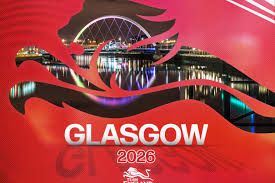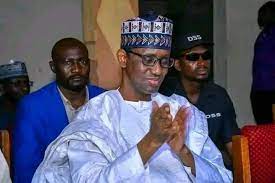
Glasgow has officially been named the host city for the 2026 Commonwealth Games, stepping in after Australia’s Victoria state withdrew due to escalating costs. The Scottish city, which successfully hosted the 2014 edition, will present a reduced version of the multi-sport event, scheduled to take place from July 23 to August 2, 2026.
The Commonwealth Games Federation (CGF) confirmed the decision on Tuesday, with the event expected to feature just 10 sports compared to the 19 that were on display at the 2022 Games in Birmingham, England. Despite the trimmed schedule, Para sports will remain a key focus, with six events integrated into the programme, including athletics, swimming, track cycling, and bowls.
The selected sports for Glasgow 2026 include:
– Athletics and Para-athletics (track and field)
– Swimming and Para swimming
– Artistic gymnastics
– Track cycling and Para track cycling
– Netball
– Weightlifting and Para powerlifting
– Boxing
– Judo
– Bowls and Para bowls
– 3×3 basketball and 3×3 wheelchair basketball
The decision to streamline the Games comes as part of a broader initiative by the CGF to create a more sustainable, cost-effective model for future editions. CGF chief executive Katie Sadleir emphasized that the 2026 event will be “a bridge to the Commonwealth Games of tomorrow,” aiming to reduce financial and environmental burdens while expanding the pool of potential host nations.
“An exciting first step in our journey to reset and redefine the Games as a truly collaborative, flexible, and sustainable model for the future,” Sadleir said, noting that the reduced format could attract more countries to bid for future Games. Glasgow’s hosting is projected to bring over £100 million in investment and generate £150 million in economic value for the region.
Australia will contribute part of the costs for Glasgow 2026, following Victoria’s withdrawal from hosting duties after predicting expenses surpassing A$6 billion (£3.13 billion, $4.09 billion). The CGF emphasized that the event will require no additional public funding, a key factor in ensuring its financial viability.
The Commonwealth Games, held every four years, continues to maintain its roots in the former British Empire, with participants primarily drawn from nations that were once part of British imperial rule.





